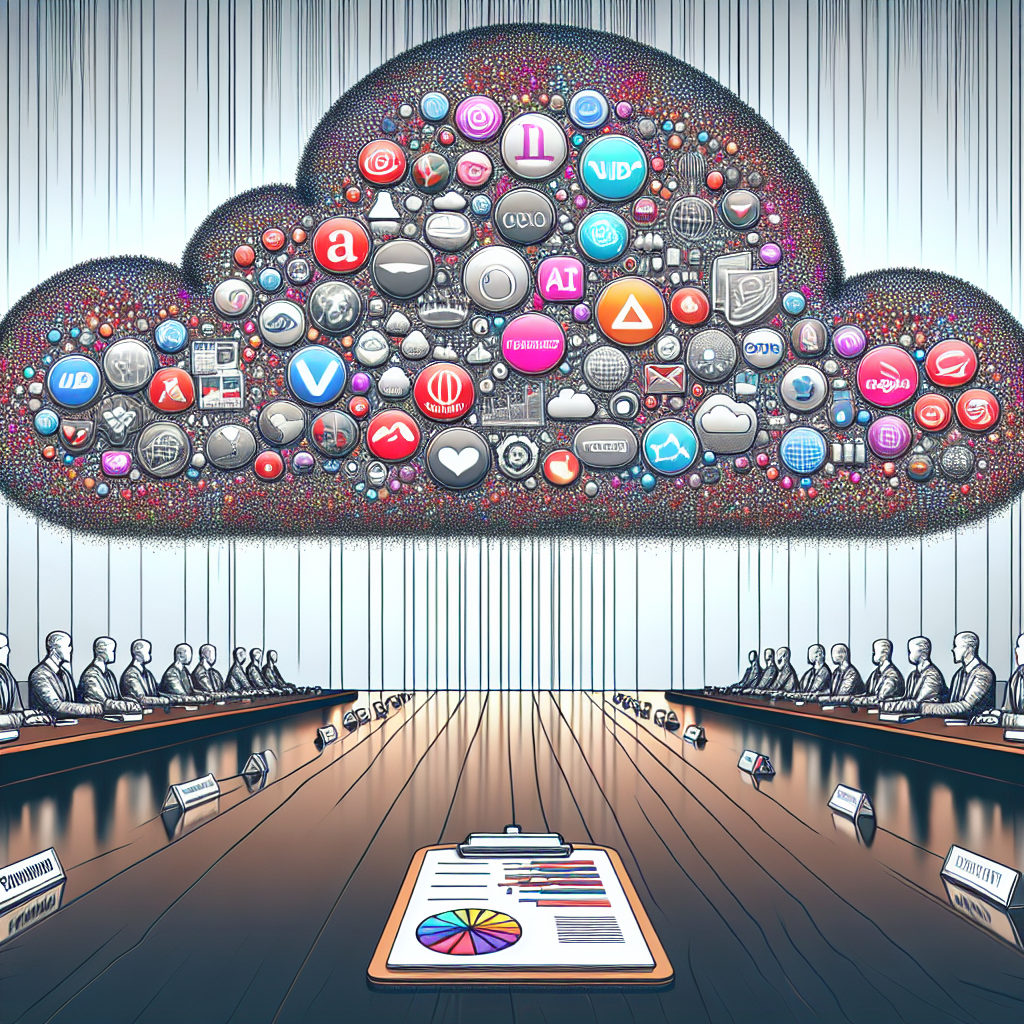AI Disruption in SaaS: The New Reality Software Companies Face
The software-as-a-service (SaaS) industry is undergoing a dramatic transformation, driven by the rapid rise of artificial intelligence. According to a recent report by global consulting firm AlixPartners, AI is simultaneously representing a major opportunity and a profound threat to traditional software companies. As the tectonic plates of technological progress shift, many firms find themselves squeezed between agile startups and big tech titans pouring billions into AI adoption.
The Growing Divide: AI Haves and Have-Nots
AI is no longer just a futuristic buzzword—it’s now a critical battleground for the software industry. Companies that proactively adopt and innovate with AI are positioning themselves for growth, while those slower to adapt may struggle or even disappear.
AlixPartners’ research outlines how AI is now a key differentiator in the SaaS market. The firm warns that we’re seeing a widening gap between:
- Startups that are “born” with AI at their core: These companies use AI to build leaner, more efficient products at lower costs.
- Tech giants: Industry leaders like Microsoft, Google, and Amazon are heavily investing in their AI capabilities, often acquiring startups to bolster their offerings.
- Established SaaS companies lagging in AI adoption: These firms often have significant technical debt and find it difficult to integrate modern AI capabilities into existing architectures.
AI’s Double-Edged Sword for SaaS
While AI opens the door to new possibilities—like enhanced automation, predictive analytics, and hyper-personalized services—it also compresses traditional revenue streams and introduces new competitive threats. SaaS providers are under immense pressure to not only adopt AI but to leverage it effectively or risk falling behind.
Key challenges facing mid-tier SaaS providers include:
- Cost pressure: AI streamlines operations, but the savings are passed on to customers in the form of lower prices, which compresses margins.
- Pace of innovation: Big tech can roll out AI features rapidly, raising customer expectations that smaller players struggle to meet.
- Customer churn: With AI-rich features becoming table stakes, customers are more willing to switch providers for better tech at lower costs.
The Financial Impact: 2025 and Beyond
AlixPartners anticipates that many software companies, especially smaller to mid-sized ones, will feel significant financial pressure through 2025. A combination of shrinking margins and sluggish growth will expose operational inefficiencies. Those unable to integrate AI effectively may face tough restructuring choices—or even exit the market.
Their analysis suggests that rather than acting as a value-add, AI is rapidly becoming an expected baseline for customers. This limits pricing power and compresses profitability across the board.
Strategic Imperatives for SaaS Leaders
For SaaS companies to survive and thrive in an AI-dominated future, AlixPartners proposes several strategic priorities:
- Embrace AI internally: Integrate AI not only into products but into internal operations—optimizing sales, customer service, and engineering workflows.
- Rethink pricing models: Explore AI-based usage and value-based pricing to align revenue with customer outcomes.
- Accelerate innovation: Rather than incremental year-over-year updates, drive continuous AI-enabled product development cycles.
- Forge partnerships and M&A: Collaborate with or acquire AI-native startups to rapidly inject innovation into mature product lines.
The Emerging SaaS Landscape: Darwinian Dynamics
What’s unfolding is a Darwinian shake-up of the software ecosystem. The winners will be those that evolve quickly and leverage AI not just for marketing, but as a deep operational advantage. According to AlixPartners, companies that restructure now and prioritize AI transformation could gain significant competitive advantages—even if it means radical shifts in their product architectures or go-to-market strategies.
This transition will likely involve tough decisions, including job role changes, new investment frameworks, and even redefining core business models.
Final Thoughts: Adapt or Be Left Behind
The advent of AI has fundamentally changed the rules of the game for SaaS players. What once worked five years ago is now obsolete. Small, nimble competitors can disrupt entire markets using AI algorithms, while mega-cap tech firms have the R&D resources to scale high-impact AI tools globally in record time.
If SaaS leaders want to stay relevant, survive, and thrive in a rapidly-evolving technological environment, profound strategic and operational transformation is no longer optional—it’s mandatory.
The message from AlixPartners could not be clearer: Those who embrace AI thoughtfully and aggressively stand to reshape the software industry of the future; those who hesitate may not survive to see it.



Leave a Reply